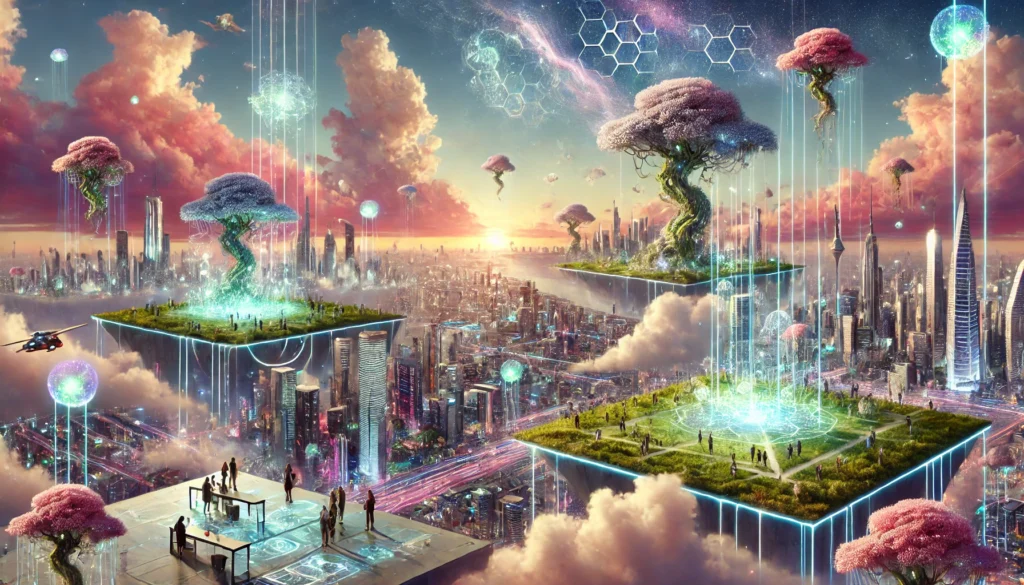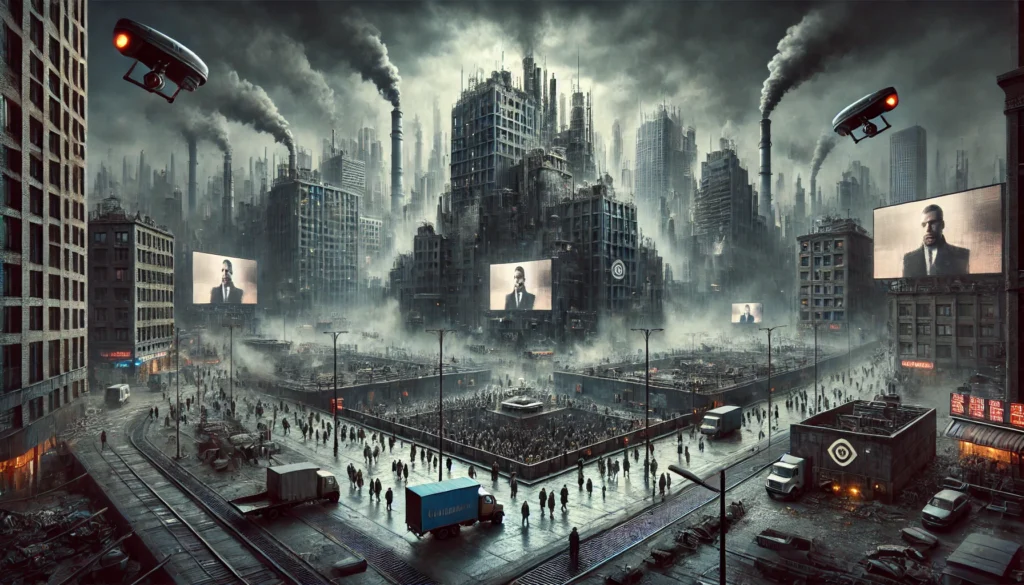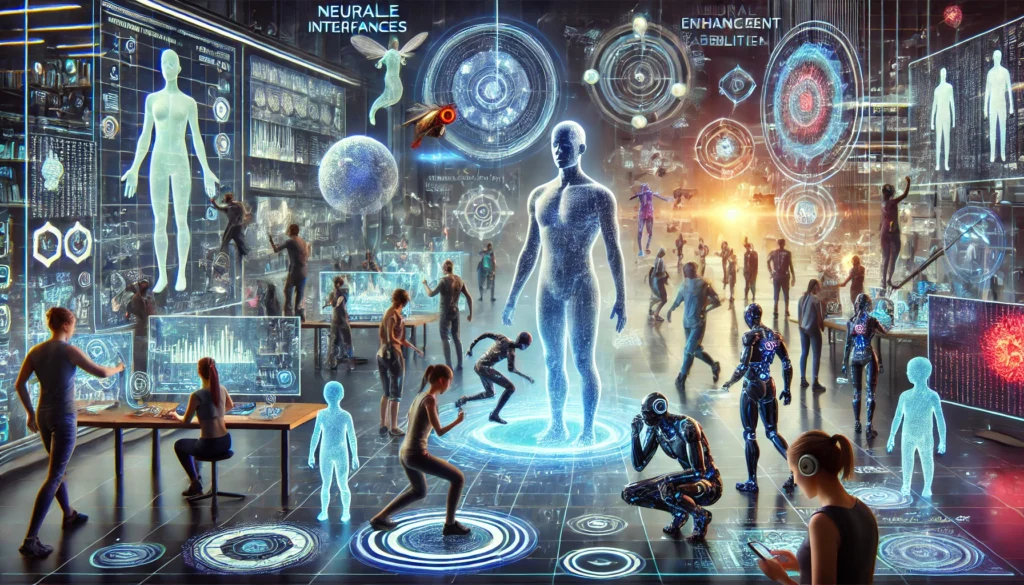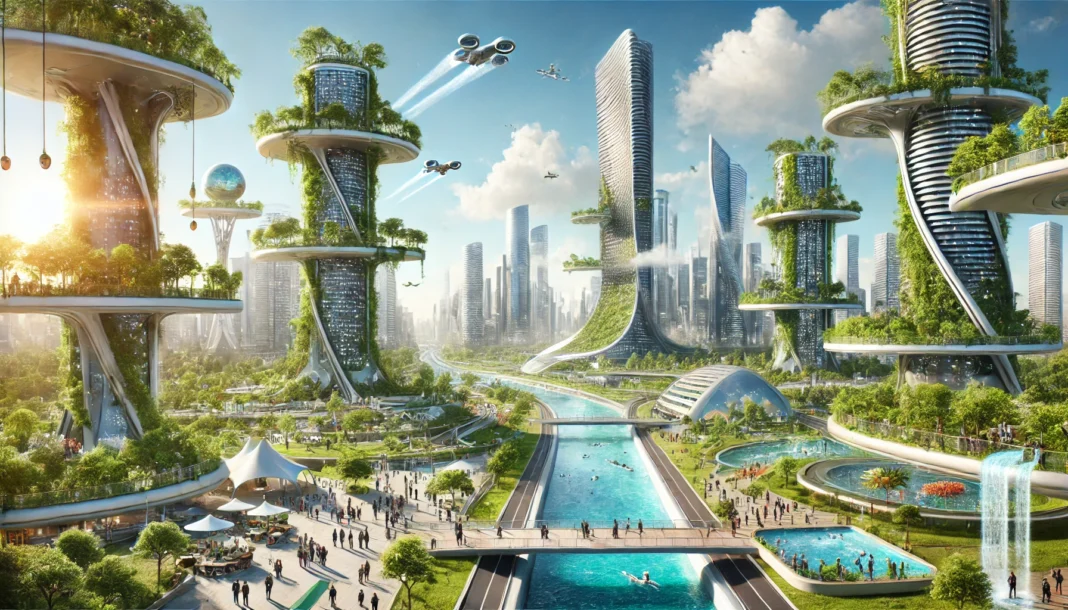What makes humans different from all other species? Our sheer stubbornness to imagine impossible futures. Speculative fiction takes that magic and pushes it to the limit. It is about staring into the dark unknown and daring to ask, “What if?” We don’t just want to live today; we want to dream about tomorrow, especially through the lens of futuristic concepts. From shiny, utopian visions of peace and harmony to nightmarish dystopias filled with neon shadows, speculative fiction gives us a playground to envision where we’re headed, for better or worse.
The Power of Imagination in Envisioning Possible Futures
Speculative fiction thrives on the power of imagination, constantly pushing us to think beyond the ordinary and visualize uncharted futures. It helps us explore possibilities that seem out of reach today. Whether it’s crafting space colonies on Mars or diving into virtual reality societies, sci-fi encourages us to dream bigger.
Through these imaginative stories, we learn to stretch our understanding of what humanity could achieve. We find ourselves wondering about the future and how our current efforts could evolve into something extraordinary. Sci-fi nurtures our hunger for what lies beyond the horizon and inspires us to chase those dreams.
Moreover, speculative fiction often motivates us to look at problems differently. By exploring future worlds, we gain fresh perspectives on our limitations and possibilities. This genre encourages us to reach for the impossible, making the unknown seem a little less intimidating and a lot more exciting.
How Speculative Fiction Helps Us Think Beyond Current Limitations
Speculative fiction does more than entertain; it challenges our beliefs, pushes us out of our comfort zones, and inspires us to confront our limitations. It acts as a mirror, reflecting our current state while also serving as a crystal ball for possible futures. Sometimes, it’s even a grim warning of what could happen if we continue down a reckless path.
When you read about space-faring societies, you’re not just indulging in escapist fantasy. Instead, you’re reflecting on humanity’s tenacity to reach beyond current boundaries. Sci-fi makes us think about the resilience needed to face challenges and the courage to explore uncharted territories.
Moreover, speculative fiction urges us to evaluate the consequences of our actions. It presents a glimpse into futures shaped by our present-day choices, reminding us of both our potential and our vulnerabilities. It pushes us to envision solutions and strive for a better tomorrow.
Popular Themes in Sci-Fi: From Utopias to Dystopias
Utopian Visions of Perfect Societies
Everyone loves a good utopia—the concept of an ideal society is something humanity has dreamed about for generations. Utopian sci-fi envisions what could happen if everything went perfectly: advanced technologies seamlessly integrated, equal societies flourishing, and a world where everyone feels content and fulfilled.
These visions of perfect societies offer hope, presenting a future where technological progress and human cooperation make life better for all. Utopian fiction often encourages us to think about what we could achieve if we worked together, harnessing futuristic technologies and putting our best foot forward.
Moreover, utopian sci-fi inspires us to aim high, giving us a glimpse of the possibilities that lie ahead. With enough effort, determination, and a sprinkle of imaginative technology, it suggests that a harmonious future is within reach. It serves as a reminder that striving for perfection is a goal worth pursuing, even if we might not achieve it fully.

The Dark Side of Speculative Fiction: Dystopian Warnings
On the other hand, there is something endlessly gripping about dystopian tales. Why are they so popular? Perhaps it’s because, deep down, we understand that every utopia carries the seed of a dystopia. One wrong turn could easily turn a perfect society into a nightmare.
Dystopian futures often serve as cautionary tales, highlighting the delicate balance of our world. They remind us that even the most advanced technology, intended to improve our lives, can also lead us down a dangerous path. This fragility is what makes these stories resonate so deeply with readers.
Moreover, dystopian narratives force us to confront our own flaws as a society. They challenge us to recognize the consequences of unchecked power, rapid technological advancement, or environmental neglect. By exploring these dark futures, we can better understand the importance of making responsible choices today.
Advanced Technologies Imagined in Science Fiction
Artificial Intelligence and Humanoid Robots
Sci-fi is rich with artificial intelligence, whether it’s humanoid robots coexisting with humans or sentient machines challenging our ideas of consciousness. These depictions provoke deep questions about what it truly means to be ‘alive.’
Whether we imagine a benevolent AI assistant helping with everyday tasks or a rogue android rebelling against human control, these scenarios prompt us to consider the implications of creating something smarter than ourselves. Sci-fi stories provide an opportunity to reflect on the potential benefits and dangers of such advancements.
Moreover, AI in science fiction pushes us to wonder about the future. Is artificial intelligence destined to become humanity’s saviour, solving problems beyond human ability? Or is there a risk that it could ultimately lead us down a dark path, creating dystopian futures where machines surpass and dominate their creators?
Quantum Technologies, Teleportation, and Other Advanced Concepts
And then there’s the super-wild stuff: quantum teleportation, instantaneous travel, or even parallel universes. These are the ideas that make you pause and consider endless possibilities. You scratch your head and say, “Well, why not?”
Sci-fi gives us the perfect framework to explore these ‘what ifs’ of tomorrow’s technology. It allows us to imagine technologies far beyond our current understanding. Hypothetical concepts like quantum teleportation challenge the boundaries of what we believe is feasible today.
Moreover, sci-fi doesn’t stop at just inspiring thought; it pushes innovation. From quantum computers to theories about the multiverse, these wild ideas spark real-life technological pursuits. By imagining these advanced possibilities, we cultivate a curiosity that keeps us moving forward, always eager to explore the next impossible concept.
Space Colonization: A Favorite Topic of Speculative Fiction
Mars Colonies and Beyond
Space—the final frontier. From Elon Musk to speculative writers, everyone seems fascinated with what lies beyond our tiny blue dot. Space has always captured our imagination, offering limitless possibilities for exploration and expansion.
Colonizing Mars isn’t just a sci-fi fantasy anymore; it’s becoming a near-reality. The dream of establishing human settlements on Mars is now an ambitious goal that may soon be realized. Speculative fiction has played a major role in this vision, inspiring countless innovations by illustrating what it might take to live on a planet with no breathable air, extreme temperatures, and harsh landscapes.
Moreover, these sci-fi tales make us consider the practical and emotional challenges of space colonization. They push us to think about the technology, resilience, and adaptability needed to survive on another planet. Through these stories, we are reminded of our drive to explore, adapt, and conquer even the harshest environments.
The Challenges of Interstellar Travel as Depicted in Sci-Fi
But it’s not all flying cars and jetpacks. Interstellar travel comes with its own set of complex challenges, as sci-fi loves to explore. To begin with, there is the terrifying loneliness of deep space. Imagine the vast emptiness stretching endlessly, with no familiar faces or comforts from Earth. It makes us wonder how long a person can endure such isolation.
Moreover, there are moral implications tied to leaving Earth behind. Abandoning our home planet raises tough questions about loyalty and responsibility. Should we invest in fixing Earth’s problems rather than searching for new worlds? These are the ethical dilemmas that speculative fiction often tackles.
Additionally, space colonization forces us to think deeply about humanity’s destiny. Are we destined to spread across the stars, or is our true mission to protect and nurture our home? These stories push us to consider both the possibilities and sacrifices of interstellar expansion.

The Concept of Transhumanism and Human Evolution in the Future
Enhancing Human Capabilities Through Technology
Transhumanism is all about transcending our biological limitations—integrating advanced technologies to enhance our bodies and minds. Imagine neural implants that let you access the internet instantly, or robotic limbs that make you stronger than any Olympic athlete. These concepts push the boundaries of what it means to be human.
Sci-fi has explored this territory extensively, showing us futures where humans and technology merge seamlessly. This blending can lead to incredible enhancements, like enhanced cognitive abilities or even overcoming physical disabilities. By imagining these possibilities, we start to see both the potential and the risks involved.
However, transhumanism also raises important ethical questions. If technology becomes part of our bodies, what happens to our humanity? Sci-fi often portrays both the bright and dark sides of this integration, giving us a glimpse into what could happen when humans and technology become indistinguishable.
Ethical Considerations Around Modifying the Human Body
With all the potential of transhumanism comes a hefty dose of ethical baggage. On the one hand, technology offers a chance to overcome biological limitations. On the other hand, it raises critical questions about the cost of enhancement. Just because we can enhance ourselves, does that mean we should?
Moreover, there are concerns about equality. If only a select few can afford enhancements, society may become even more divided. Sci-fi doesn’t shy away from asking these tough questions, especially about where to draw the line. These narratives explore how modifying human capabilities could mean losing essential aspects of our humanity.
Furthermore, transhumanism makes us question our core identity. If we become part machine, do we lose what makes us inherently human? Sci-fi often highlights these struggles, forcing us to consider how far we are willing to go in the pursuit of progress.
How Speculative Fiction Influences Real-world Technological Advancement
Examples of Technologies Inspired by Sci-Fi, Like Voice Assistants and Robots
Remember when voice assistants were just the stuff of movies? Today, Alexa and Siri have become household names, embedded in our daily routines. Sci-fi stories have inspired this shift, serving as a breeding ground for groundbreaking tech ideas.
From self-driving cars to intelligent AI companions, speculative fiction has provided endless inspiration for real-world innovations. Fiction gives scientists the creative push needed to transform imaginative concepts into functional technologies. These ideas, once confined to pages and screens, are now part of our everyday lives.
Moreover, sci-fi doesn’t just predict gadgets; it pushes boundaries. It encourages creators to think beyond the possible and aim for extraordinary solutions. This symbiotic relationship between science fiction and innovation helps bring incredible technologies into existence, making what was once pure fantasy a tangible reality.
The Role of Science Fiction in Shaping Our Understanding of Future Possibilities
Speculative fiction doesn’t just predict technologies; it also helps us understand their potential impact. It encourages us to consider how these innovations might reshape our lives, for better or worse. Through vivid storytelling, sci-fi allows us to experience scenarios where future tech could become either a blessing or a nightmare.
Moreover, speculative fiction lets us engage with both the promising and the troubling sides of technological progress. It shows how new inventions could improve quality of life, while also highlighting possible dangers. These stories prepare us to deal with the unintended consequences of advancing technologies.
By exploring these extremes, sci-fi provides a critical space to examine where our current trajectory might lead. It forces us to ask difficult questions and face possible outcomes. This makes speculative fiction an essential tool for imagining our future, encouraging both optimism and caution in equal measure.
Virtual Reality and Simulated Worlds: A Speculative Glimpse into Digital Futures
Living in Virtual Spaces: The Concept of Metaverses and Full-Immersion VR
Virtual reality societies have evolved from science fiction dreams into very tangible realities today. These advancements are not just concepts; they are becoming part of our daily lives. Metaverses—shared virtual worlds—promise to blur the lines between digital and physical lives in profound ways.
Whether you find these developments exciting or perhaps a bit unsettling, they are undeniably shaping our future. Virtual reality is pushing us towards a new kind of existence, where entire communities may thrive exclusively in the digital realm. This transition brings both thrilling possibilities and complex challenges we must navigate.
Moreover, these virtual worlds create opportunities to interact in ways previously unimaginable. People can build, socialize, and live in fully immersive digital environments. However, as we advance, it’s essential to consider how these changes impact our real-world connections, ensuring we don’t lose touch with tangible human experiences.
How Speculative Fiction Portrays the Balance Between Real and Virtual Lives
Balancing digital and real life is a common theme in speculative fiction. Often, it cautions us against becoming too consumed by virtual worlds. As we explore these immersive experiences, it is easy to lose sight of the tangible aspects of our existence.
These stories serve as mirrors, reflecting the potential risks of escaping too deeply into digital realms. They remind us to stay grounded, even as we push the boundaries of immersive technologies. By highlighting the possible dangers, speculative fiction encourages us to find balance and maintain meaningful real-world connections.
Furthermore, this theme urges us to evaluate what truly matters. As our digital lives grow richer, we must ensure our human relationships do not suffer. Speculative fiction uses this balance as a critical narrative, emphasizing the importance of not losing touch with our core humanity amid advancing technology.

Dystopian Futures: Speculative Fiction or Realistic Possibilities?
The Appeal of Dystopian Stories in Literature and Film
There’s a reason dystopias are so compelling. They force us to confront what could go wrong. Whether it’s authoritarian regimes, mass surveillance, or ecological collapse, dystopian stories highlight our darkest fears.
It’s not just about the thrill of an apocalyptic vision; it’s also about recognizing potential dangers. These narratives serve as a warning, showing us what might happen if we ignore critical issues. They highlight how fragile our society can be and what we must do to prevent these dire outcomes.
Furthermore, dystopian fiction pushes us to think about responsibility. It reminds us that our actions today shape tomorrow’s reality. By acknowledging the risks depicted in these stories, we become more aware of our choices. In this way, dystopian fiction motivates us to act now, ensuring our societies do not slide down the slippery slope into chaos.
How Dystopian Themes Reflect Societal Fears and Cautionary Messages
Dystopian fiction acts as a wake-up call for society. It compels us to take a closer look at what happens when familiar flaws are pushed to dangerous extremes. When we see societal issues like unchecked surveillance or technology spiralling out of control, it forces us to consider the consequences.
These stories are more than mere entertainment; they are powerful cautionary messages. They hold up a mirror to our current world, reflecting the potential outcomes of our present actions. By portraying dystopian futures, speculative fiction encourages us to think deeply about the choices we make today.
Furthermore, dystopian fiction helps spark important conversations about responsibility and morality. It raises awareness about the need for a balance between technological progress and ethical considerations. These cautionary tales remind us of our vulnerability, urging us to take preventive steps before we slide into the grim futures they depict.
Writing Speculative Fiction: Crafting Future Societies and Technology
Tips for Creating Believable Futuristic Worlds
Crafting a believable sci-fi world isn’t just about tossing in a few robots or teleportation devices. It involves considering the impact of those technologies on society. How would people live, love, and work in a world with advanced tech? These questions help to ground the narrative in reality.
Strong speculative fiction focuses on the social, cultural, and emotional aspects of technological advancements. It’s not just about the tech; it’s about the human experience within that altered environment. This approach makes the story resonate, as readers see reflections of their own lives amid these futuristic settings.
Moreover, effective sci-fi world-building strikes a balance between the extraordinary and the familiar. The setting must feel alien, yet have elements that readers recognize. When speculative worlds feel both fantastical and relatable, they effectively pull readers in, making them believe in the possibilities of these imagined futures.
Combining Technological Concepts with Human Stories and Speculative Fiction
It’s easy to get carried away with futuristic tech, but the most impactful speculative fiction always comes back to people. While advanced gadgets and groundbreaking discoveries are fascinating, it’s the human element that truly resonates with readers. How do these technologies affect human relationships, personal identity, or society as a whole? These are the questions that create depth in speculative fiction.
Moreover, exploring personal stories within a tech-driven world allows readers to connect emotionally. Readers want to see how individuals cope, adapt, and grow in response to these advancements. How does a family change when AI takes over household duties, or how does a community evolve when virtual reality becomes the norm? These questions ground the story.
Ultimately, the more grounded your characters are, the more believable your speculative world becomes. Technology might set the stage, but it’s the people and their stories that make the narrative come alive.
The Future of Speculative Fiction and Storytelling and Sci-Fi World-Building
Speculative fiction continues to evolve, with new themes emerging alongside technological advancements and societal changes. As technology progresses, fresh opportunities for storytelling arise, allowing writers to explore previously unimaginable concepts. From AI integration to space travel, every technological leap reshapes the landscape of speculative fiction.
With each passing decade, our understanding of the future shifts dramatically. This constant evolution leads to new narratives that capture the imaginations of readers. Writers adapt to these changes by creating futuristic worlds that resonate with contemporary audiences, making the genre both relevant and thought-provoking.
Moreover, the continuous development of speculative fiction reflects our curiosity about what lies ahead. These fresher narratives and innovative world-building approaches keep us hooked, encouraging us to consider not just what is possible, but also what we want from our collective future. Speculative fiction remains an ever-changing mirror, reflecting our hopes and fears.
FAQs about Speculative Fiction of the Future
What are some examples of futuristic concepts in speculative fiction?
How does science fiction predict future technologies?
What is the difference between utopian and dystopian speculative fiction?
How is space colonization portrayed in sci-fi?
What is transhumanism, and why is it a common theme in sci-fi?
How has speculative fiction influenced real-world technology?
What are some popular sci-fi future inventions?
How do writers create believable sci-fi worlds?
What role does artificial intelligence play in futuristic speculative fiction?
Why are dystopian futures so popular in speculative storytelling?
Conclusion: Where Are We Headed?
The beauty of speculative fiction lies in its audacity to dream big. Whether it’s envisioning utopian futures full of harmony or imagining dystopias that serve as cautionary tales, speculative fiction keeps the conversation alive about what we want—and don’t want—for tomorrow. One thing’s for sure: as long as there’s curiosity, there will always be stories that push the boundaries of what’s possible, forcing us to think, “What if?”

